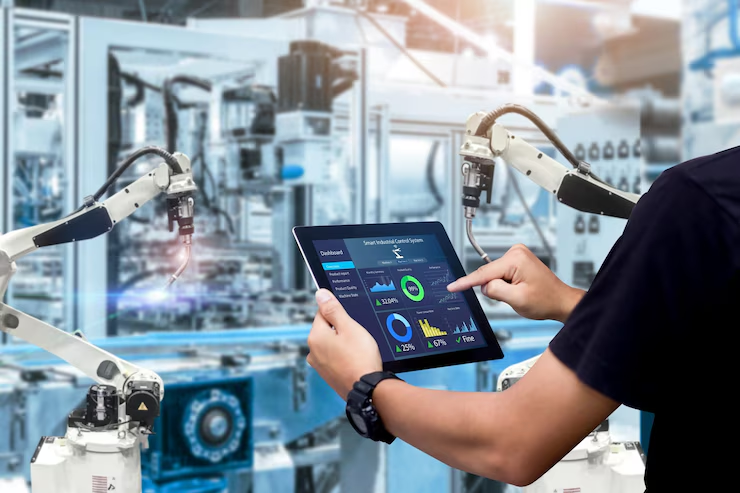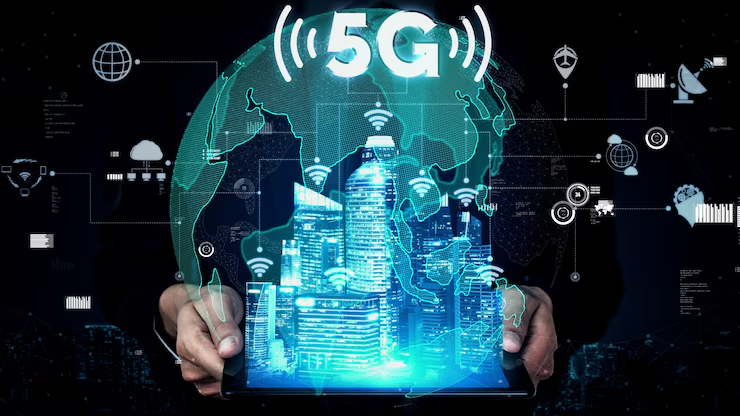The Internet of Things (IoT): A Comprehensive Guide to Its Impact, Scope, and Future

In the contemporary digital age, technological advancements are happening at an unprecedented pace. One of the most transformative developments is the concept of the Internet of Things (IoT). The term has become increasingly ubiquitous in various fields such as healthcare, smart homes, agriculture, transportation, and even cities. But what exactly is IoT, how does it work, and what does the future hold for this fascinating technology? In this article, we will delve deep into the meaning of IoT, explore real-world examples, discuss its career potential, and evaluate its scope in comparison with other technologies, such as Artificial Intelligence (AI).
What is the Internet of Things (IoT)?

At its core, the Internet of Things refers to the network of physical devices, vehicles, home appliances, and other objects that are embedded with sensors, software, and other technologies, enabling them to connect and exchange data over the internet. This interconnection facilitates communication between devices without human intervention.
The Internet of Things is a concept that brings everyday objects to life, making them smarter and more responsive. This networked environment allows devices to collect and transmit data, enabling automation and real-time monitoring. Through this interconnectivity, IoT plays a crucial role in streamlining operations and creating efficiencies in various industries.
How Does IoT Work?

The operation of IoT is relatively simple but highly effective. It consists of several components that work together to enable the communication and data exchange process:
-
Devices/Things: The physical objects embedded with sensors, actuators, and microchips that can collect, send, or receive data. Examples include smart thermostats, connected cars, wearables, and smart kitchen appliances.
-
Sensors and Actuators: These components are responsible for collecting data from the environment and acting on it. Sensors detect environmental conditions like temperature, humidity, motion, or pressure, while actuators perform actions based on the data received.
-
Connectivity: Once data is collected by sensors or devices, it needs to be transmitted over a network. This can be done via Wi-Fi, Bluetooth, cellular networks, or specialized IoT networks like Zigbee or LoRa.
-
Data Processing: After the data is transmitted to the cloud or a local server, it is processed using specialized software to analyze, store, and interpret it. This stage can include basic rule-based decisions or sophisticated machine learning algorithms.
-
User Interface: The results of the data processing are displayed to users through dashboards or applications. This could be a smartphone app or a web-based interface, where users can take action based on the insights derived from the data.
Examples of IoT Applications

To better understand IoT, it’s essential to see how it is applied in real-world scenarios:
-
Smart Homes: Devices like smart thermostats (e.g., Nest), lighting systems (e.g., Philips Hue), and security cameras (e.g., Ring) are examples of IoT technology. These devices can communicate with each other and be controlled remotely via a smartphone app, enhancing convenience, energy efficiency, and security.
-
Healthcare: IoT is revolutionizing the healthcare sector with wearable devices like fitness trackers (e.g., Fitbit), smartwatches (e.g., Apple Watch), and remote patient monitoring tools. These devices collect health data such as heart rate, steps taken, or blood sugar levels and transmit it to healthcare professionals in real time for monitoring and diagnosis.
-
Industrial IoT (IIoT): In industries like manufacturing, IoT sensors are used to monitor machine performance, predict maintenance needs, and optimize production lines. For instance, sensors can detect when a machine part is about to fail, reducing downtime and increasing productivity.
-
Agriculture: IoT devices such as soil moisture sensors, weather stations, and automated irrigation systems are helping farmers optimize crop yields, conserve water, and monitor livestock health.
-
Smart Cities: IoT is also making cities smarter by connecting infrastructure like traffic lights, parking meters, streetlights, and waste management systems. This enables city planners to optimize resources, reduce energy consumption, and improve the overall quality of urban life.
Is IoT a Good Career?

The rise of the Internet of Things has created an abundance of new career opportunities across multiple sectors. As businesses and industries continue to adopt IoT solutions, there is a growing demand for skilled professionals who can develop, deploy, and manage IoT systems. Below are some of the key careers in the IoT space:
-
IoT Developer: IoT developers are responsible for creating the software that powers IoT devices. They work with programming languages like Python, Java, and C++, and must understand hardware and embedded systems as well.
-
IoT Solutions Architect: These professionals design IoT systems and solutions, ensuring that they meet the specific needs of an organization. They need to have a strong background in both software and hardware engineering and a deep understanding of networking and cloud technologies.
-
IoT Security Specialist: Security is a significant concern in IoT systems. IoT security specialists work to ensure that IoT devices are protected from cyber threats, including securing the networks that connect them and the data they generate.
-
IoT Data Analyst: IoT generates massive amounts of data. Data analysts in the IoT space analyze this data to derive actionable insights that can improve operations, productivity, and decision-making.
-
IoT Product Manager: These professionals oversee the development of IoT products, ensuring that the product meets user requirements, complies with regulations, and aligns with business goals. They also manage the product lifecycle and coordinate with various stakeholders.
Given that the IoT market is expected to grow significantly, these roles will continue to be in demand. As businesses across sectors like healthcare, manufacturing, and agriculture adopt IoT solutions, the career potential for individuals in this field is strong.
Does IoT Have Scope?

The scope of IoT is vast and continues to expand as more devices become interconnected. The market for IoT solutions is growing rapidly, driven by the increasing adoption of smart devices, the rise of automation, and the demand for data-driven insights. Here are some factors contributing to the widespread scope of IoT:
-
Market Growth: According to recent reports, the global IoT market is expected to reach $1.1 trillion by 2026. This growth is fueled by advancements in technology, decreasing costs of sensors, and the increasing availability of 5G networks.
-
Diverse Applications: IoT’s applications extend to almost every industry, from healthcare and agriculture to transportation and smart cities. This diversification opens up opportunities for innovation and value creation across various domains.
-
Consumer Demand for Smart Devices: As consumers increasingly adopt smart home devices, wearables, and connected vehicles, the demand for IoT solutions continues to rise. This creates opportunities for IoT companies to expand their offerings and cater to a broader customer base.
-
Industrial Automation: The IIoT (Industrial Internet of Things) is one of the most promising sectors. Manufacturers are leveraging IoT to improve efficiency, reduce downtime, and enhance product quality. IoT is also enabling predictive maintenance and supply chain optimization.
-
Smart Cities: With the rapid growth of urban populations, cities are increasingly relying on IoT solutions to manage traffic, reduce energy consumption, improve public safety, and optimize public services. This makes IoT integral to the future of urban development.
As we continue to integrate IoT into various aspects of our lives, the technology will evolve, creating new opportunities and industries in the process.
Is IoT Better Than AI?

When comparing IoT and Artificial Intelligence (AI), it is essential to recognize that they are complementary technologies rather than direct competitors. While both are transforming industries and revolutionizing the way we live and work, they serve different purposes:
-
IoT: As mentioned, IoT connects physical devices to the internet and allows them to collect and exchange data. It focuses on data collection and automation. IoT systems rely heavily on sensors, actuators, and connectivity to perform tasks.
-
AI: Artificial Intelligence, on the other hand, refers to the simulation of human intelligence in machines that can perform tasks like problem-solving, learning, and decision-making. AI systems analyze vast amounts of data and can make decisions based on patterns and trends.
While IoT generates the data, AI can process and analyze that data to make smarter, real-time decisions. For example, in smart homes, IoT devices like smart thermostats collect data about your preferences and environment. AI can then use that data to optimize energy usage, enhance comfort, and predict future needs.
Rather than one being better than the other, IoT and AI are highly synergistic. IoT provides the data that AI uses to make intelligent decisions, and together, they are driving the development of advanced technologies in industries like healthcare, manufacturing, and autonomous vehicles.
Conclusion
The Internet of Things is one of the most significant technological advancements of the 21st century. It has the Internet of Things potential to transform industries, improve efficiencies, and enhance the way we live our daily lives. With its vast applications and growing market scope, IoT represents an exciting opportunity for individuals seeking careers in technology.
While IoT and AI serve different purposes, they are not mutually exclusive; instead, they complement each other, driving innovation across various sectors. As IoT continues to expand its reach, the future looks bright for this technology and the professionals working within it. Whether you’re a developer, data analyst, or security expert, IoT offers a wealth of career opportunities with long-term potential.
As we continue to integrate IoT into our lives, its scope will only grow, leading to new innovations, applications, and challenges in the years to come.



Nhà cái 188v con cung cấp dịch vụ cá cược thể thao đỉnh cao, cho phép bạn đặt cược vào nhiều môn thể thao khác nhau như bóng đá, bóng rổ, tennis và nhiều môn khác.
Bạn cần truy cập đúng trang chủ link 66b, sau đó điền đủ các thông tin cần thiết. Hãy đảm bảo thông tin này được nhập chính xác đầy đủ, vì đây sẽ là những thông tin quan trọng để bạn có thể đăng nhập và thực hiện giao dịch sau này.
PP, WM, EVO, DG, AG, Microgaming, SA, VIVA Gaming,… xn88 lừa đảo các NPH Live Casino tiềm năng mang đến cho người chơi hàng loạt cơ hội nhận thưởng gấp 40 lần tiền cược ban đầu. Bạn có thể thử sức với các trò chơi mới lạ như: Fast Baccarat, Speed Roulette, Fan Tan,… TONY12-10A
Tham gia chơi tại tải 888slot app không chỉ đem lại cơ hội cá cược hấp dẫn mà còn đi kèm với nhiều ưu điểm nổi bật giúp nâng cao trải nghiệm của người chơi. TONY12-16
Kv999vips, VIP treatment, you say? Sign me up! Hoping for some sweet bonuses and maybe a lucky streak. Will report back! kv999vips
66b login sở hữu kho game phong phú với hơn 500 trò chơi được phát triển bởi các nhà cung cấp hàng đầu như Evolution Gaming, Microgaming và NetEnt. Điều này đảm bảo chất lượng đồ họa sắc nét và trải nghiệm chơi game mượt mà trên mọi thiết bị. TONY12-30
188v school có hệ thống điểm thưởng (Loyalty Points) – mỗi 10.000 VNĐ cược, bạn nhận 1 điểm. Điểm này có thể đổi lấy tiền mặt, vòng quay miễn phí hoặc voucher nạp tiền. TONY01-16